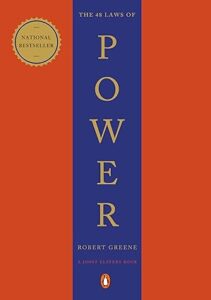5 Lessons About Power and Friendship from Gossip Girl Season 1 Explained
Friendship is a Fragile Power Balance
The entire emotional engine of Season 1 is the fractured relationship between Serena van der Woodsen and Blair Waldorf. Their dynamic is the show’s first and most important lesson: friendship, especially in a rigid hierarchy, is not about love, but about a mutually understood power balance.
For the year Serena was away, Blair was the undisputed Queen Bee. Her power was absolute. Serena’s return is not the happy reunion of best friends; it is a geopolitical event that destabilizes the entire social order.
Blair’s cruelty isn’t just about a boy (Nate); it’s about the terror of being relegated to second-in-command. Their friendship only begins to heal once the power dynamic is renegotiated, after Blair has publicly humiliated Serena and re-established her own authority. Their bond is real, but it can only exist when their respective power levels are in a state of acceptable equilibrium.
Information is the Ultimate Currency
In the world of the Upper East Side, money is a given, but power is not. The true source of power, the season argues, is information. Gossip Girl herself is the ultimate embodiment of this principle. She holds no title and has no inherited wealth, yet she is the most powerful person in their world because she controls the narrative.
A single email blast can dethrone a queen, expose a secret, or create a scandal out of thin air. The characters understand this instinctively. Blair’s power over her minions comes from knowing their secrets. Chuck’s power comes from his willingness to use what he knows, as seen when he threatens to expose Serena’s secret about Pete Fairman. Season 1 was a prescient look at the dawning social media age, teaching us that the person who controls the information, controls the game.
The Pursuit of Power Requires the Sacrifice of Self
No character illustrates this lesson more painfully than Jenny Humphrey. “Little J” begins the season as the show’s moral compass, a creative, ambitious girl from Brooklyn who is horrified by the cruelty of the UES.
Yet, her desire to be accepted, to gain a foothold in that world of power, forces her into a series of moral compromises. She lies, she schemes, she betrays her own father’s trust, and she becomes a pawn in Blair’s games, all for a seat on the Met steps. Her arc is a tragic case study in the loss of authenticity. To become one of “them,” she has to systematically kill the parts of herself that made her unique. The season argues that the price of admission into the world of the powerful is often the very soul you started with.
True Alliances are Forged Between Equals
The season masterfully contrasts Blair’s two central relationships. Her long-term romance with Nate Archibald is a relationship of tradition and expectation, but it is not one of equals. Nate is passive, controlled by his father, and their bond crumbles under the slightest pressure.
Conversely, the burgeoning, toxic connection between Blair and Chuck Bass is a partnership of equals. They are drawn to each other not despite their darkness, but because of it. They recognize and respect each other’s capacity for manipulation, scheming, and power plays.
Their tryst in the back of the limo isn’t just a betrayal; it’s a meeting of two minds who operate on the same ruthless wavelength. The season teaches that the most enduring bonds, for better or for worse, are not formed out of convenience or expectation, but out of a mutual recognition of equal strength.
Power Can Be Found in Rejection of the Game
While Jenny tries to win power by playing the UES game, her brother Dan Humphrey finds his own form of power by refusing to play at all. As “Lonely Boy,” his outsider status is his greatest asset. He critiques their world, judges their actions, and in doing so, creates a space for himself that is immune to their rules. His relationship with Serena gives him unprecedented access, but he never truly tries to assimilate. His power comes from his perceived moral and intellectual superiority.
He is the one character who cannot be easily controlled by Blair’s schemes or Chuck’s money.
Season 1 teaches that while the game of the elite is all-consuming, a unique and potent form of influence belongs to the person who is confident enough to stand on the sidelines and write their own rules.













Post Comment